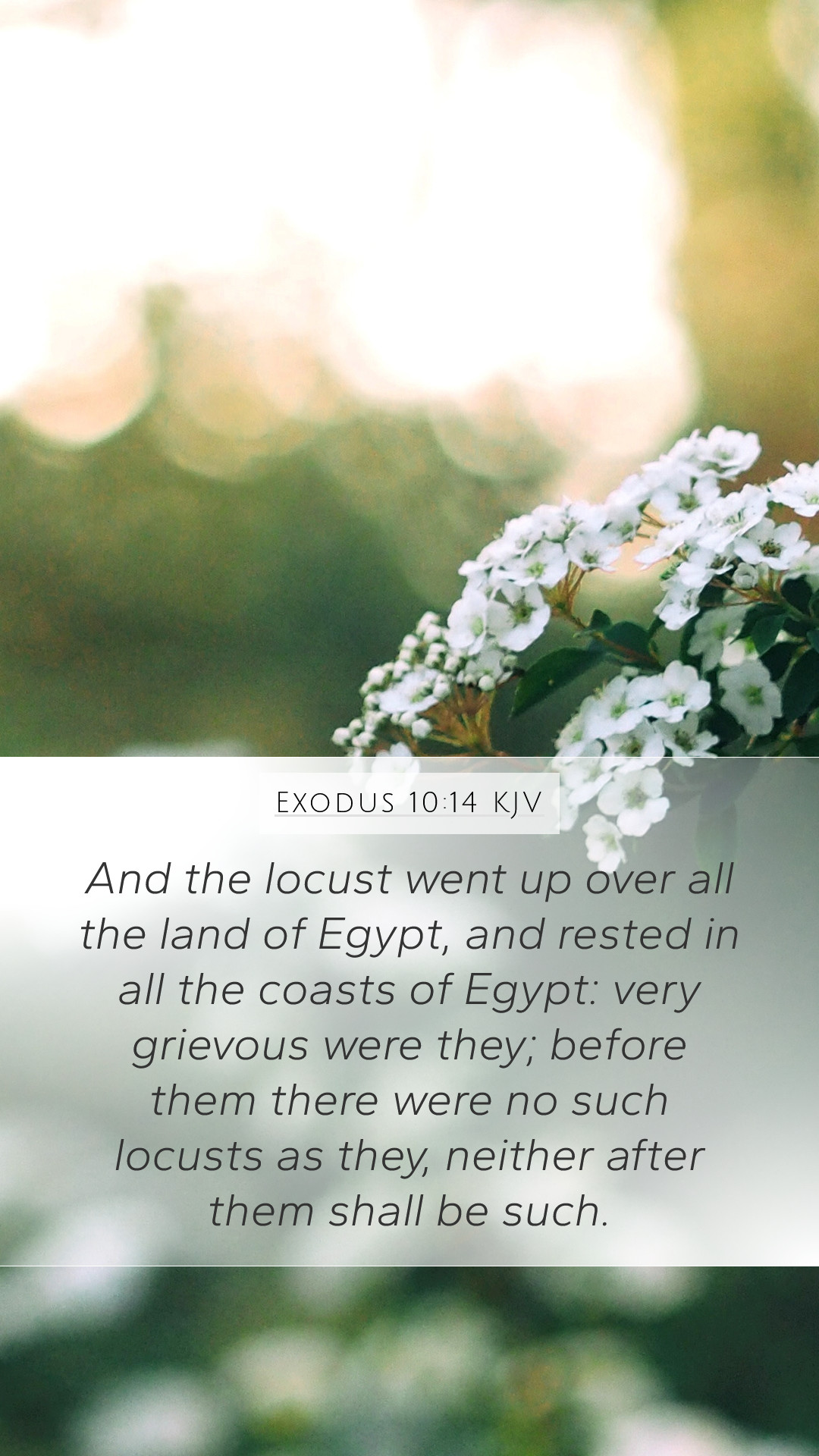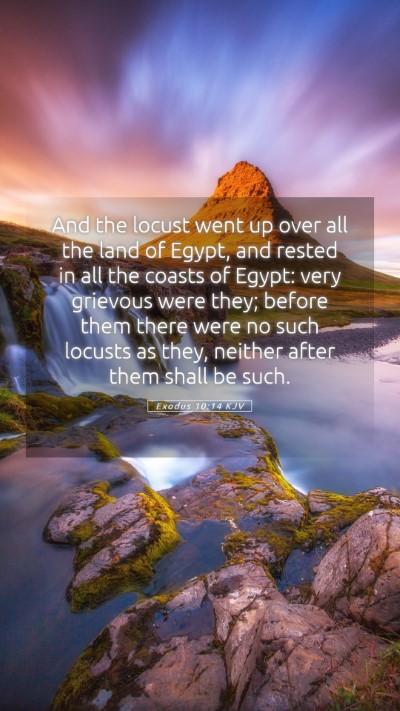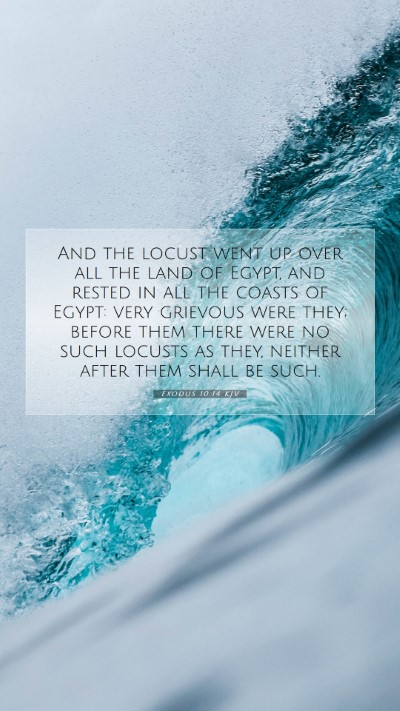Exodus 10:14 - Bible Verse Meaning, Interpretations, and Explanations
Exodus 10:14 says, "And the locusts went up over all the land of Egypt, and rested in all the coasts of Egypt: very grievous were they; before them there were no such locusts as they, neither after them shall be such."
Understanding Exodus 10:14
The verse is situated within the narrative of the plagues of Egypt, which demonstrate God’s power and judgment against Pharaoh's obstinacy. The context surrounding this verse indicates the intensifying severity of the plagues. The locust plague, mentioned here, was one of the final plagues designed to compel Pharaoh to release the Israelites from bondage.
Insights from Public Domain Commentaries
-
Matthew Henry's Commentary:
Matthew Henry highlights the locusts' unprecedented nature, underscoring their impact on the land of Egypt. He points out that the description of these locusts serves as a divine sign of God's wrath and a demonstration of His sovereign control over nature. Henry emphasizes the locusts' role as an instrument of judgment and a call for repentance from Pharaoh.
-
Albert Barnes' Commentary:
Barnes elaborates on the ferocity and abundance of the locusts' invasion. He notes that such a crisis would destroy the remaining crops, exacerbating the famine already affecting Egypt. Barnes interprets this as a final warning to Pharaoh, emphasizing the dire consequences of continued rebellion against God's commands.
-
Adam Clarke's Commentary:
Clarke provides an analysis of the historical aspects of locust plagues and their societal repercussions. He notes the locusts' capacity to devastate agricultural resources and likens them to an army invading fertile lands. Clarke stresses the gravity of the locust invasion as part of God’s overarching plan to liberate His people from slavery.
Key Themes and Takeaways
Exodus 10:14 can be analyzed under several critical themes:
- Divine Judgment: The locusts represent God's active judgment against Egypt and serve as a metaphor for spiritual blindness.
- Repentance: The intensity of the invasion compels readers to consider God's call to repentance, both in ancient times and today.
- Power of God: This event illustrates God's supremacy over creation, demonstrating His ability to command nature for His purposes.
Application of Exodus 10:14
In contemporary study, this verse invites believers to reflect on their own “plagues.” In what ways are we ignoring God's signs in our lives? What locusts might be sweeping through our own lands, calling us to openness and humility before God?
Cross References
- Exodus 8:5: The warning of another plague upon Egypt.
- Joel 1:4: A similar depiction of locusts as a metaphor for destruction.
- Revelation 9:3: Symbolism of locusts in prophetic literature.
For Further Study
For those engaged in Bible study groups, consider using this verse with Bible study tools and Bible study resources for deeper understanding. Questions such as “What does Exodus 10:14 mean?” or “What is the significance of locusts in the Bible?” can facilitate enriching discussions.
Conclusion
Exodus 10:14 calls for both a historical understanding and a personal application in the life of believers. It challenges readers to engage in in-depth Bible verse analysis and to actively apply the lessons of obedience and humility before God in their daily lives.


